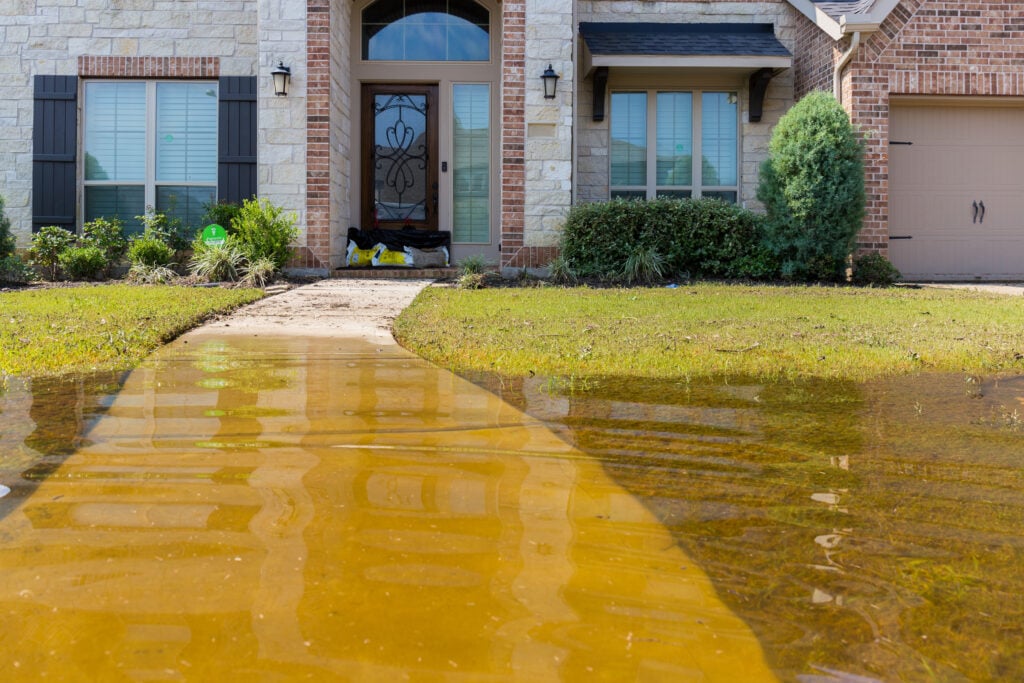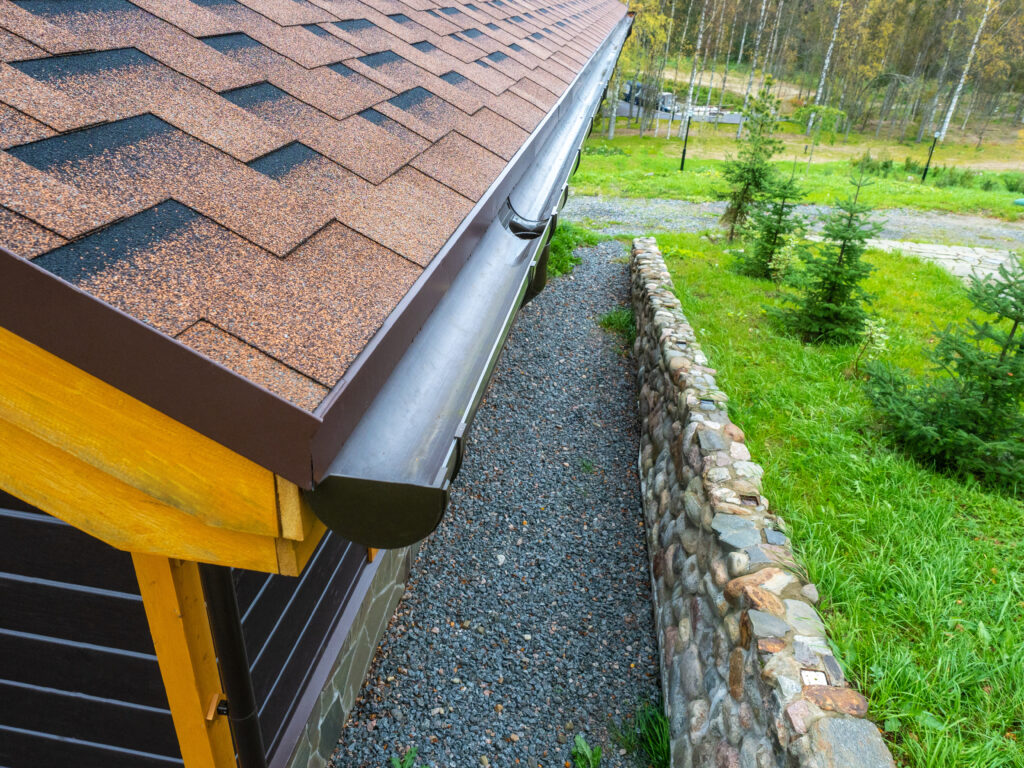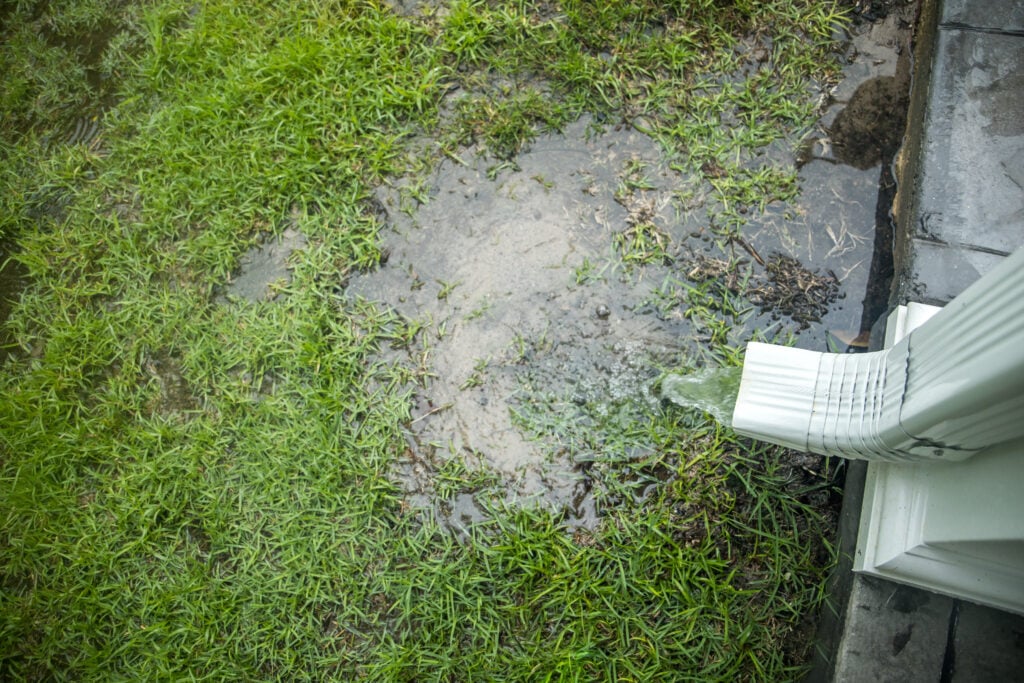
Ideas to Grow Your Landscaping Business in the Off-Season
Ideas to Grow Your Landscaping Business in the Off-Season For Landscape Contractors, if the sun is shining, you’re busy working! Spring and summer are likely
Springtime in the Northeast can bring longer days, warmer temperatures, and unfortunately flooding. Between rain and melting show, the water around your home can pool up quickly, sometimes finding its way into your basement. Added moisture in your basement could lead to damaged items, and even mold. Luckily, there are a few things that you can do to reduce the risk of water finding its way into your home this spring.
If you live in a Northeast state like Maine, New Hampshire, or Connecticut, you may have noticed a trend of water collecting in your basement as the temperatures start to rise. Why does this happen? There are a number of factors why spring is a particularly tricky time of year to keep water from entering your home. The first factor is that although we see warmer days, it takes months for the ground to fully thaw. Rainwater that would usually soak into the soil cannot. This, combined with melting snow, means there is an abundance of extra water around your home that can find its way inside.

To help reduce the likelihood of water collecting in your basement, find out where it is entering your home. Inspect the walls of your basement, inside and outside, looking for cracks, holes, or openings. You may be able to repair these cracks with epoxy yourself, or you can contact a basement waterproofing company if you feel like you need professional help and advice. Constant changes in temperature- such as winter thawing to spring- can create new cracks, so if you haven’t checked for a while, it may be time to take a second look.
Installing a gutter system is one way to redirect water away from your home and the foundation. If your home doesn’t already have a gutter system in place, consider having them professionally installed. If you have a metal roof and live in an area with heavy snowfall, ask a roofing professional if snow guards can be installed to prevent damage from falling ice and snow.

When it comes to rain gutters, there are many different material options, including:
Researching the durability and maintenance of each of these options before installation can save you from added work later. For example, while wood gutters may match the exterior of your home, they usually require painting or staining every year. Vinyl gutters can be an easy to install option, but they typically do not have the durability that the other options have.
If you do not already have a sump pump installed in your basement, look into having one installed. Consider backup power sources, like a battery, so your pump will run even when the power is out. Sump pumps should be checked annually to make sure they are functioning properly. You can test your sump pump by slowly pouring a bucket of water into the pump, and wait for it to turn on. If the pump does not appear to be functioning, try cleaning the pump by removing dirt or debris from the opening. If this does not fix the problem, look for worn parts, and look up manufacturer’s recommendations on when you should replace parts of your sump pump.
Walk around your yard and notice any elevation changes around your house. Ideally, the ground should slope down around the perimeter of your house. Notice if there are any trees that grow close to your house, as their roots can sometimes cause problems with your basement walls. 
Dishwashers, washing machines, and refrigerators have water lines that can fail and leak. When installing a new appliance, be sure to follow manufacturer’s guidelines. Never force the water line into a tight bend. Some newer smart appliances have features that will automatically detect leaks. 
After your basement has flooded is not a great time to wonder what your homeowners policy covers. Check with your local insurance agent to see what coverages you currently have, and if you may need anything additional. If you are looking for a homeowners insurance quote, Cross Insurance works with many national and regional carriers to provide you with options. They have offices in Maine, New Hampshire, Massachusetts, Connecticut, New York, Vermont and Florida. You can see their full list of office locations here.
When storing your belongings in the basement, always think about the possibility of water entering. Installing shelving, risers, and storing items in waterproof totes can help to minimize the damage if water does start to enter your basement. Any electronic devices such as laptops, tablets, or gaming consoles should never be stored on the floor.
If your basement does flood, do not stand in the water. If there is exposed wiring near the water, there could be a risk of electrocution. If you can safely gain access to your circuit breakers, you can turn off the power. If you cannot access them, you may need to call your power company to have them turn it off.
If the leak looks like it is coming from an appliance, see if you can safely turn off the water to that appliance. If the leak seems to be coming from somewhere else, safely locate the water shut off valve and turn off the water to your house.
Depending on the damage from the flood in your home, your next step may be calling your insurance company. The insurance company will typically have a list of approved companies who focus on flood cleanup and mold mitigation. If the water damage is not extensive, you may be able to clear the water yourself. You can remove water using a wet/dry vacuum, or a mop and bucket. If any cardboard was dampened, throw it out to avoid bacterial growth. After removing the water and any damaged items, ventilate the area well by leaving doors open and using fans.
___________________________________________________________________
This article is for general informational purposes only and is not to be relied upon or used for any particular purpose. Cross Insurance shall not be held responsible in any way for, and specifically disclaims any liability arising out of or in any way connected to, reliance on or use of any of the information contained in this article. The information contained or referenced in this article is not intended to constitute and should not be considered legal, insurance, accounting or other professional advice, nor shall it serve as a substitute for the recipient obtaining such advice. The views expressed in this article are that of its author and do not necessarily represent the views of Cross Financial Corp. and its subsidiaries and affiliates (“Cross Insurance”) or Cross Insurance’s management or shareholders.

Ideas to Grow Your Landscaping Business in the Off-Season For Landscape Contractors, if the sun is shining, you’re busy working! Spring and summer are likely

When Should I Begin Thinking About Medicare? Disclaimer: This is an advertisement and solicitation. The Medicare eligibility age is typically age 65, however, you may

Starting a Business in Retirement You’ve retired from your career, but is it time for an encore? Maybe you’ve been thinking about a dream business